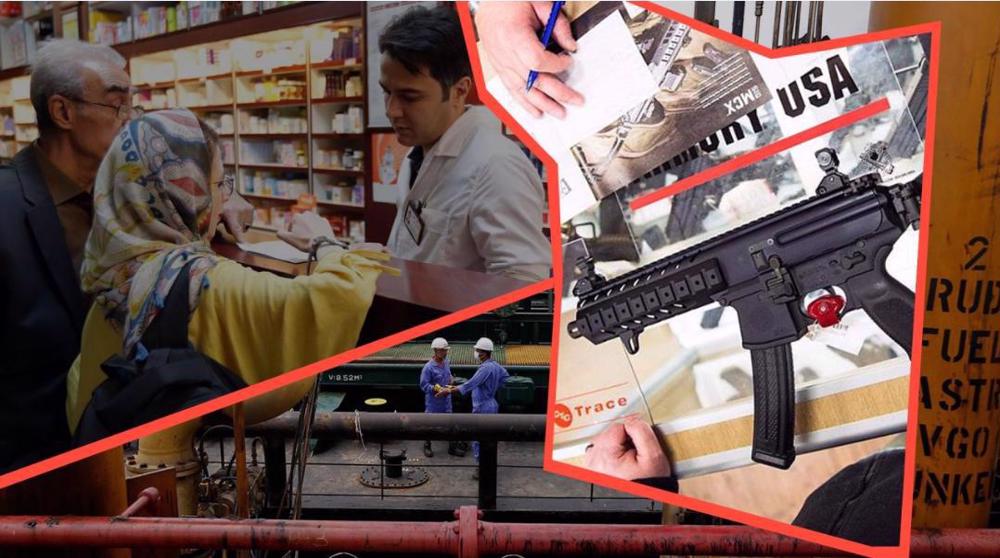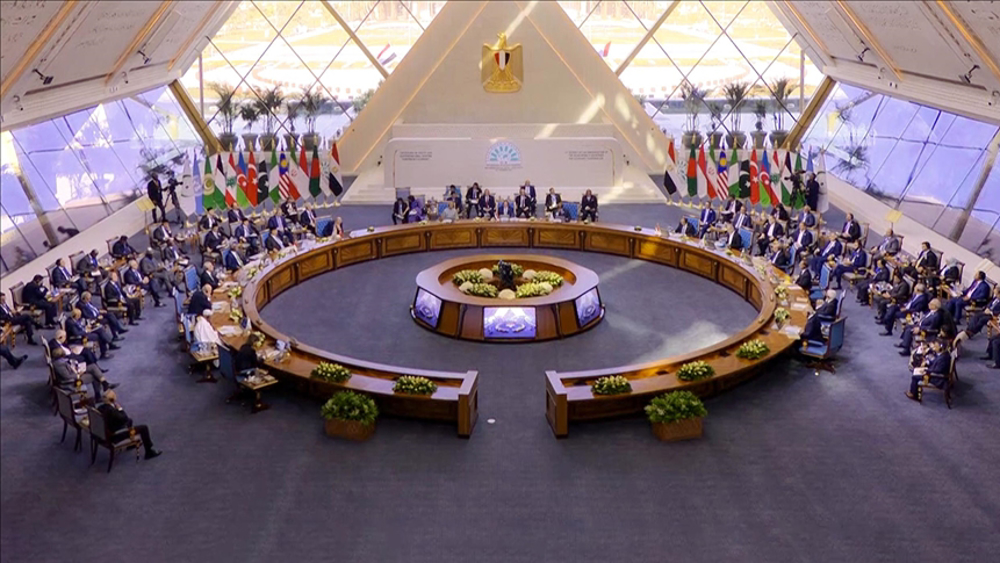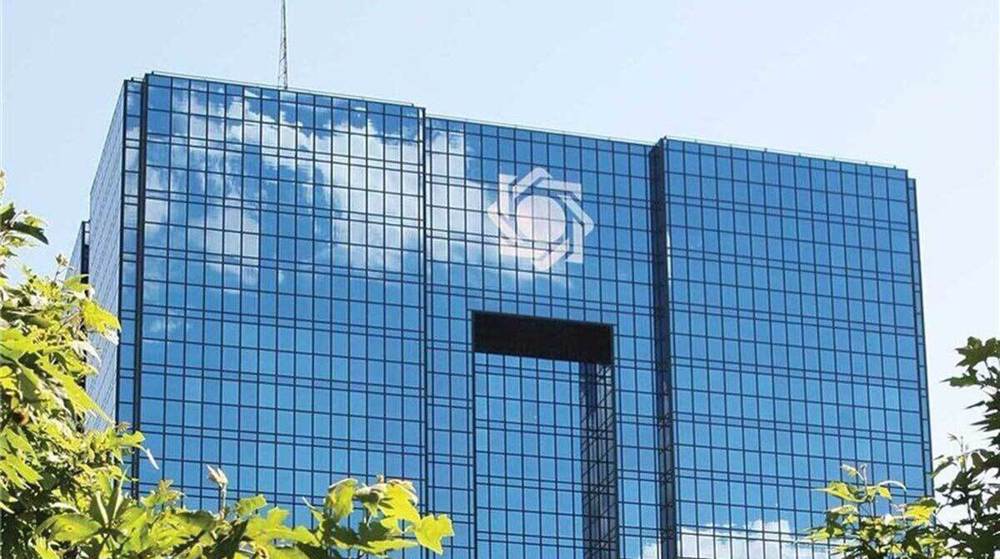To worry or not to worry: ‘Hidden war’ on Iran
Over the past decade, the United States has waged a new brand of financial warfare, unprecedented in its reach and ferocity and unique in its intricacy and slyness, mainly against Iran and other countries.
Initially launched as a “hidden war” to financially squeeze America’s principal enemies, it is no longer secret since it is viewed central to America’s national security doctrine.
Far from relying solely on the classic sanctions or trade embargoes, the campaign has consisted of a novel set of financial strategies that harness the international financial and commercial systems to ostracize America’s enemies and constrict their funding flows with the aim of inflicting maximum pain.
Based on a blueprint developed after 9/11 attacks, this warfare is defined by the use of financial tools, pressure, and market forces to leverage the banking sector, private-sector interests, and foreign partners in order to isolate targets from the international financial and commercial systems and eliminate their funding sources.
The intricate plan is based on a simple hypothesis: If you can cut off funding flows to the enemies, you can restrict their ability to operate and force them to submission.
According to Juan Zarate who as deputy national security adviser helped the US Treasury develop the new warfare, “finding the soft financial underbelly of the US enemies” has become the mission of its architects whom he calls “bureaucratic insurgents” and “guerrillas in gray suits”.
For months, the group reportedly debated whether the same tools that the US had used to isolate al-Qaeda from the formal financial system after 9/11 and to target North Korea could be leveraged to attack Iran. Could the new brand of financial warfare be waged successfully against Tehran?
Though it had been subject to US sanctions for years, Iran and its business sector had continued doing billions of dollars’ worth of trade every year with the rest of the world. The sixth largest supplier of energy resources to the European Union in 2012, the country retained deep commercial and financial ties with economic powers such as Germany and South Korea and represented an important market for Europe and Asia.
Neighboring countries, including the United Arab Emirates and Turkey, had even deeper commercial and financial ties with Iran. Likewise, Iranian businessmen and companies did easy and open business in most parts of the world.
Most importantly, Iran had oil which remained its trump card. Oil provides instant access to markets and the business of extracting, selling, and transporting oil brings with it an array of business and financing relationships. Oil also creates ties to an international market reliant on the flow of crude from the Middle East.
Vulnerabilities
Still, Iran depended on its international connections in the global financial and commercial system. The same ties that gave Iranian businesses access to foreign markets created dependencies – and hence vulnerabilities - for them in the international financial system.
What’s more, the Iranian oil market was not immune from pressure. Global oil trading occurs in US dollars, and any deals for Iranian oil had to be priced and transacted in dollars.
Perhaps most important was the vulnerability of the Iranian banking sector. Iranian banks such as Bank Saderat, Bank Melli, Bank Mellat, and Bank Sepah had a deep international presence in places like London, Frankfurt, Tokyo, Beirut, and Dubai. They were important for Iran’s business ties and relations, providing lines of credit, correspondent accounts, and account access around the world to Iranians and their customers.
Enveloping trap
The US had already leveraged relevant multilateral forums to target purported terrorist financing and define international obligations according to its own interests. Just days after 9/11, the Treasury had taken the international components of the National Money Laundering Strategy (FATF) and directed its “bureaucratic insurgents” to steer this international body to focus on US priorities of combating terrorist financing.
The FATF had been established by the Group of Seven (G7) largest developed economies at a Paris summit in 1989 to tackle the threat of money laundering to the international banking and financial system. By 2012, it had thirty-six members.
The new US campaign included bringing the full weight of the FATF to bear on Iran. If Iran was to be isolated financially, the FATF had to be engaged to pass judgment on Iran’s anti-money-laundering and counter-terrorist-financing system.
If the Iranians were found to be outside the bounds of the financial system or purportedly failing to cooperate or comply with G7-imposed standards, then there could be consequences.
In the post-9/11 era, the United States and other G7 members developed tools to isolate a jurisdiction deemed as non-compliant and make investment and business in that jurisdiction suspect.
As the FATF began engaging directly with the Iranian government, the process soon appeared to be an enveloping trap. Each letter from the FATF seeking sensitive financial intelligence raised Iran’s suspicions about the true intent of the process.
Amid this campaign to put increasingly greater financial pressure on Iran, there emerged an unexpected opportunity to hit the country through a witch hunt. In 2008, the US government searching for Iranian assets became aware of what appeared to be more than $2 billion in a Citibank account held by Clearstream.
In June 2008, a judge in the US District Court for the Southern District of New York froze over $2.25 billion in Clearstream assets belonging to the Central Bank of Iran under the counter-terrorist-financing prerogative.
That year, the US identified Bank Saderat as a principal target per Section 311 of the Patriot Act, under which the Treasury is authorized to designate foreign financial institutions as being “of primary money laundering concern”.
Pressuring Iran to answer questions about its nuclear program was a major goal. When it became clear that Iran would not budge, the United States turned to the use of an all-out financial pressure campaign.
According to Zarate, the aim was to stage the financial assault on Iran’s banks and its financial system—in large part by demonstrating to CEOs and compliance officers around the world that the risk of doing business with Iran was too high.
The Swiss banking giants UBS and Credit Suisse announced then that they would stop or curtail their business with Iran. Other banks and companies would soon follow, including the European banking giants ABN Amro and ING. Germany’s second-largest bank, Commerzbank, also ended its dollar-clearing transactions with Iran.
The financial pressure campaign continued to mount, with more designations and targeting of the private sector. In September 2008, the Treasury designated Iran’s shipping line IRISL and eighteen of its subsidiaries because they were critical to most of Iran’s primary overseas engagements.
‘Tool of hegemony and coercion’
The FATF has raised criticisms of an unfair process targeting easily identifiable and politically vulnerable states.
It is a non-binding regulatory institution formed by Germany, Britain, Italy, the US, France, Japan and Canada plus the European Commission, and eight other European states. It is based on the 40+9 Recommendations imposed by the G7 countries -- 40 recommendations on money-laundering and nine special recommendations on terrorist financing.
FATF’s founders praise it for its global standards on countering terrorism financing and protecting the integrity of the international financial system.
Global standards, however, consist of a standard setter and a standard user. The standard setter influences independent organizations and standard users to adopt standards based on the expert knowledge that is suitable for the standard setters’ logic of appropriateness.
Unlike most intergovernmental bodies, the FATF is not regulated by an international treaty. This, experts say, has resulted in the organization having a vaguely defined constitution.
The FATF is also often referred to as a transnational expert network that consists of government officials, finance ministers or financial regulatory agencies. The transnational expert network produces standards that are normally considered to be neutral or fair.
However, various scholars argue that the FATF reflects the interests of powerful countries such as the EU member states and the US that enforce preferences on other jurisdictions. They say the organization reflects the interests of powerful countries because it depends on funds from Western governments, mainly the US.
The US has been at the center of the international counterterrorism policies through the Treasury and the Office of Foreign Assets Control, which is in charge of overseeing the counter-terrorism measures or recommendations and issuing sanctions to non-compliant countries and many states have adopted the American model.
Political scientist and sociologist Anja Jakobi says the US has adopted a Gramscian strategy understood through concepts of hegemony, coercion and consent, such that actors accept the USA preferences as their own.
According to Gramsci’s theory, the world order is controlled by an alliance of elites that have power to influence world affairs to serve their interests. The transnational alliances have common socio-economic and political values and manipulate civil society through the rule by consent.
Gramsci’s theory shows how the 40+9 Recommendations have been imposed by developed countries on developing countries through the use of coercion in the form of blacklisting countries or meting out hefty fines on financial institutions.
The FATF rule-making or decision-making process is also characterized by unequal negotiating power between the developed and developing countries and tends not to reflect the norms of developing countries.
According to Atanu Ghoshray, an economic researcher at Newcastle University, the FATF’s recommendations have been imposed by Western countries on the developing countries’ national laws and financial institutions without considering their different socio-political or economic realities.
It has therefore resulted in the developing countries being coerced to adopt the Western countries’ counter-terrorism measures without having had an input in the decision-making process.
James Thuo Gathii, a professor of law at University of Chicago, says the current setup of FATF’s recommendations and interpretative guidance notes tend to be insensitive to the concerns of the countries that are not economically powerful. Various countries have further implemented all the recommendations without having played a role in formulating the standards.
Other experts say the unequal negotiation power between the developed and developing countries has been worsened by the experts who are appointed and paid by the Western countries to participate on the formulation of FATF standards. The experts, they say, are accountable to institutions such as the UN Security Council and the IMF, which are dominated by powerful Western states.
According to Gathii, like the World Bank and the IMF, the FATF is controlled by the Western countries that manage and control the social and economic realities of the developing countries.
When countries do no not comply with the recommendations they face economic penalties such as reduction of foreign investments, increase on the interest rates on credits, reduction of a country’s credit rating, withdrawal of banking license, freezing of assets or hefty fines imposed by US entities like the Office of Foreign Asset Control.
Financial institutions have further feared sanctions by not abiding by the FATF standards. However, countries from the West and their allies have not been subjected to risk- or standards-based reviews in implementing FATF recommendations.
Who is a terrorist? Who are terrorism sponsors?
The FATF views Iran as a jurisdiction of concern chiefly because of its support for Hezbollah which besides defending Lebanon against Israeli invasions is involved in building hospitals, schools and homes. The West also accuses Iran of terrorist links for supporting popular Palestinian movements such as Hamas which are fighting the Israeli aggression and occupation.
However, the FATF has never subjected the US and the Europeans to its anti-terrorism standards for supporting the Mujahedin Khalq Organization (MKO) which until recently was on their list of terrorist organizations. Ironically, a key architect of the anti-terror measures, John Bolton, is a familiar face at MKO’s annual meetings in Paris.
Other anti-Iran terrorist groups such as Jaish al-Adl and PJAK are widely believed to be in the pay of Saudi Arabia and connected to US and European spy agencies, but the countries have never come under scrutiny to prompt a standard-based review under FATF recommendations.
Saudi Arabia and other Western allies in the Persian Gulf are also known to be the key sponsors of the most violent terrorist groups such as al-Qaeda and Daesh, but they have robust trade ties marked by multibillion dollar arms deals with the US and the Europeans which always escape the FATF’s attention.
Even being wrong-footed by the FATF does not always warrant sanctions to be imposed on those countries or to be isolated from the international financial system.
For example, the UAE has been the focus of numerous reports about its role in the dirty gold trade, and chastised by the FATF for inadequate oversight of the sector. A report by the UK's Home Office and Treasury has also named the UAE as a jurisdiction vulnerable to money laundering by criminal networks because of the ease with which gold and cash could be moved through the country.
Reports have linked European companies, including Swiss refiner Valcambi, to the dirty gold trade by the UAE, but there have never been any consequences.
The US itself created and funded al-Qaeda, according to former Secretary of State Hillary Clinton. Former US president Donald Trump described his predecessor Barack Obama as the "founder" of Daesh and Hillary Clinton as co-founder.
Still, the FATF standards are not applied against the US for founding the most macabrely murderous terrorists, but Iran is a regular target for supporting Hezbollah which is currently a leading anti-terror force and the chief protector of Lebanon.
Israel, another US ally, is given the same treatment. Viewed by many independent international groups and institutions as a prime state terrorist, Israel is known for its sophisticated assassination of Muslim leaders, scientists and scholars.
Intel gathering from ‘gold mine’ of financial transactions
The twenty-first-century economy is defined by globalization and the deep interconnectedness of the financial system. The United States has remained the world’s primary financial hub, with inherent value embedded in access to the American financial system. The dollar serves as the global reserve currency and the currency of choice for international trade, and New York remains a core financial capital and hub for dollar-clearing transactions. With this concentration of financial and commercial power comes the ability to wield access to American markets, American banks, and American dollars as financial weapons.
To exert this power, US strategists found out that what they needed was to develop a more active financial intelligence capability.
Financial intelligence is any bit of information that reveals commercial or financial transactions and money flows, asset and capital data, and the financial and commercial relationships and interests of individuals, networks, and organizations.
Such information can come in a variety of forms, but the quintessential form is the information used and kept by banks and other financial institutions on its clients, customers’ accounts, and transactions. For this reason, the national and international anti-money-laundering frameworks built in the 1980s and 1990s focused on setting reporting requirements for banks and other bank-like financial institutions.
These requirements were expanded well beyond the classic banking sector with the passage of Title III of the USA PATRIOT Act, which further expanded the reporting requirements to nonbank financial institutions such as insurance companies, money-service businesses, and brokers and dealers in precious stones and metals.
Under these requirements, banks and regulated institutions around the world today have to submit transaction reports and currency transaction reports above a certain amount ($10,000 in the United States) to their host governments. Banks that make cross-border wire transfers are required to report specific information about the originator and ultimate beneficiary of any transaction.
The records of those transactions—addresses, phone numbers, real names, banks utilized—are deemed a gold mine of information for the US government.
According to US government planners, “such information can help complete the mosaic of intelligence being gathered by other means and the enemy networks can then be targeted, watched, and disrupted”.
Codename ‘Turtle’: US-Europe complicity
The idea prompted the Treasury to execute the most aggressive financial intelligence collection campaign it ever attempted, but it needed to tap into a system under the European oversight.
The US had to gain access to the bank-to-bank transfer information contained in the databases of the Society for Worldwide Interbank Financial Telecommunication (SWIFT), which operates a financial messaging service for financial transactions communicated between member banks.
The SWIFT system is used daily by thousands of institutions around the world. Based in Brussels, it is overseen by central banks from the Group of Ten (G10) countries. When assets are moved across borders from one bank to another, banks need a harmonized, secure system by which to communicate and transfer those assets—detailing where the transfer is coming from, what amounts are being transferred, and what institutions and clients are the recipients and beneficiaries.
SWIFT has a virtual monopoly as the switchboard of the international financial system. The Treasury never had access to this information, but it would need to find a way of gaining access to this treasure trove of financial data.
The US government had already tried to have access to SWIFT data, but without success. Intrigued by the idea of leveraging SWIFT data, US officials finally invited the CEO of SWIFT who was an American to visit the Treasury, “and he was there to cooperate—seeing himself first and foremost as an American”.
By the end of October 2001, the Treasury Department was reportedly getting the information from SWIFT that it requested and beginning to build the program that would later become known as the Treasury Terrorist Financing Tracking Program.
Within the Treasury, officials gave it the code name “Turtle”—the opposite of SWIFT. The program took on a great deal of secrecy and more code names, with limited access reportedly given to a select group of officials and analysts.
SWIFT was supposed to be apolitical and neutral, but with this move, it was cooperating with the United States in its economic warfare. SWIFT officials had made a risky decision, but the US government had achieved what it wanted.
As pressure on Iran increased, European and American politicians would put access to SWIFT squarely into the debate about isolating Iranian banks. In 2012, for the first time ever, SWIFT unplugged designated Iranian banks from its system, in accordance with a European directive and under the threat of possible US legislation.
Collapse of Western order
Member banks including from China and Russia are now questioning whether SWIFT and the FATF are merely a political tool of the West.
Alternative networks challenge SWIFT’s hold on its position as the core global banking communications system. Already, the Iranians have resorted to using the Internet and faxes to send messages to brokers and banks as a means of replacing SWIFT messages.
While the US has found new ways of using financial intelligence, tools, and campaigns to isolate perceived enemies from the formal financial system, the countries have adapted to avoid the pressure leveled by the formal financial system and the US Treasury.
Most importantly, the states and nonstate actors that the United States has targeted are inventing new means of avoiding sanctions. The United States has little influence over the separate financial and monetary systems that are emerging, particularly in the cyberrealm.
Moreover, there are increasing efforts, including by some US allies, to limit the United States’ unilateral leverage in the financial sphere which is coming home to roost on the yards of the Europeans.
A quick example is the Nord Stream project to bring Russian gas into the heart of Europe, which is nearing completion. However, it has emerged as a major source of friction in trans-Atlantic relations, with the US pushing back against it and threatening to sanction European companies involved in it.
The threat is antagonizing European allies such as Germany, Ukraine, Poland and the Baltic states which are unhappy with the US for using its domestic laws to impose sanctions on foreign companies.
Government’s puzzle
Amid this changing geopolitical power theater and push to channel financial processes away from the US system, there is renewed debate in Iran on the contentious anti-money-laundering and anti-terrorism financing legislation.
In a televised speech recently, President Hassan Rouhani advocated for the ratification of two remaining bills to complete Iran’s action plan with the FATF.
Rouhani admitted that the adoption of the two bills may not solve the country’s problems, but said officials who opposed them should consider how they would explain to the people how not ratifying them would allegedly hurt the country.
Iran’s government officials have said there is no guarantee that after fully signing on all FATF recommendations the West would lift the sanctions. That begs the question as to why then Iran should ratify something which would mean exposing some of its most crucial data to the enemies' intelligence gathering in return for almost nothing.
The FATF is only one of the tools among US measures to find, in Zarate’s words, “the soft financial underbelly” of the Islamic Republic in order to strike at the country’s crucial economic and trade arteries.
Many observers believe the West’s main issue is with Iran’s nuclear and missile capabilities and joining the FATF would not stop the US and the Europeans from pushing the Islamic Republic further to the corner.
D-8’s role in Iran’s economy after Cairo summit
China slams US as ‘war-addicted’ threat to global security
China ‘firmly opposes’ US military aid to Taiwan
VIDEO | Press TV's News Headlines
President Yoon Suk Yeol to be removed from office
At least 19 Gazans killed by Israeli airstrikes since dawn: Medics
Leader: Iran neither has nor needs proxy forces
US fighter aircraft shot down ‘in friendly fire’ amid aggression on Yemen










 This makes it easy to access the Press TV website
This makes it easy to access the Press TV website